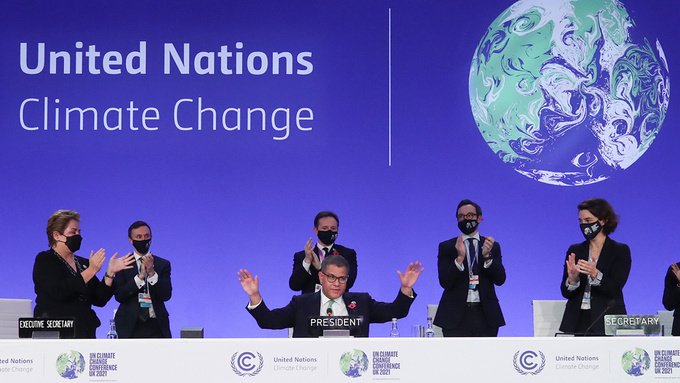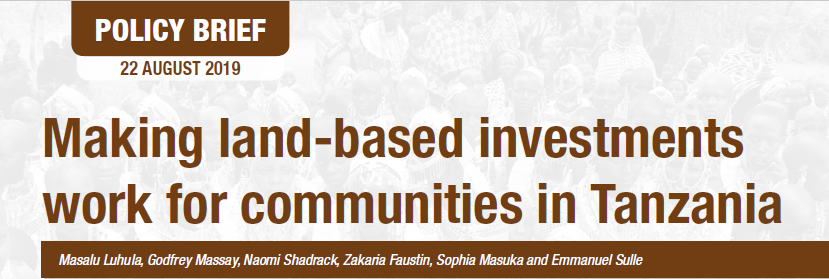UNFCCC COP26; WHAT WAS ACHIEVED OUT OF THE CONFERENCE?
The United Nations Climate Change (UNFCCC) Summit, the Conference of Parties (COP26) was held from 31st October to 13th November 2021 by world leaders in Glasgow, Scotland. The meeting brought together leaders from all countries in the world to act together and agree on how to step up global action to solve the climate crisis.
cop26_closure.jpg

COP26 President Alok Sharma on the conference’s last day. Photo credit: Yves Herman/Reuters
The main objective of COP26 was to secure global net-zero by mid-century and keep 1.5 degrees within reach, adapt to protect communities and natural habitats, mobilize finance required to secure global net-zero, and work together to deliver finalization of the Paris rulebook (the rules needed to implement the Paris agreement.
After discussions, pledges, and commitments it was agreed that The UN climate summit delivered on its primary goal of keeping alive the Paris Agreement’s aim to limit global warming to 1.5°C (2.7°F) above preindustrial levels. Nations agreed on the Glasgow Climate Pact, which states that carbon emissions will have to fall by 45 percent by 2030 to keep alive the goal. However, the success relies on pledges and might not translate into actions.
Moreover, countries agreed on “phase-down of unabated coal power,” which is the single biggest source of global temperature rise, new rules for trading carbon credits across borders, a call for nations to return in 2022 with new, more ambitious targets to curb emissions; and a request for a yearly report summarizing nations’ annual commitments to reduce emissions. Another great news during the conference was The United States and China, the largest emitters, agreed to work together on climate despite recent rifts in diplomatic relations. Also, over one hundred nations pledged to cut 30% of their emissions of methane by 2030. More than 130 nations, possessing 90% of the world’s forests, agreed to halt and then reverse deforestation by 2030. Over 450 financial institutions overseeing $130 trillion in assets promised to align their portfolios with the goal of achieving net-zero emissions by 2050.
Despite good promises and commitments, some coal-reliant countries have indicated that they will not completely stop using coal until the 2040s or later. Countries also failed to make significant progress on climate finance. The UN Environment Program estimates that developing countries need $70 billion per year for adaptation, and this figure is expected to double by 2030. Going into COP26, poorer nations renewed their calls for financial help from richer nations to adapt to the effects of climate change. They also sought to establish a loss-and-damage fund for developed countries to compensate developing countries for areas irreparably harmed by climate impacts. Although the Adaptation Fund, which was established in 2001 to finance adaptation efforts in developing countries, received $356 million in new support at COP26, funding levels remain woefully inadequate. And though the pact presses rich nations to at least double finance for adaptation by 2025, this remains billions of dollars below the projected costs. In addition, the lack of women and young people in decision-making on the earth’s future has also fuelled skepticism about the COP process. But protests led by women, indigenous, and youth activists at the Glasgow conference could provide the push that leaders need. Guterres acknowledged the power of activists to propel governments and companies beyond words and into actions.
To ensure that countries follow through on their pledges, The Glasgow Climate Pact includes provisions to increase transparency with the aim of boosting accountability. If implemented properly, the enhanced transparency framework will be an effective tool. And, in 2023, nations are set to meet in the United Arab Emirates to assess progress as part of the Paris Agreement’s global stocktake to evaluate whether nations are fulfilling their commitments. For more information about COP26 and details of what was agreed click here.

